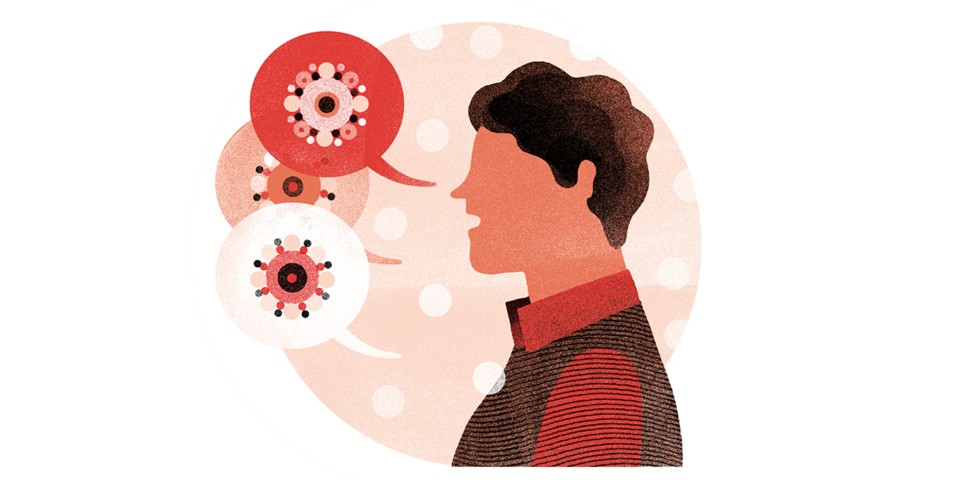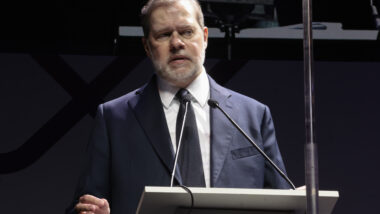
Ouça este conteúdo
In George Orwell's dystopian novel 1984, the totalitarian state that dominates Oceania is not content in curbing what its citizens do or say: surveillance reaches even the thoughts of people. The "crimethink", in the jargon created by Newspeak, is the act of feeding ideas contrary to the ideology of "English socialism" and is restrained by the Thought Police. The horror that most of us feel when imagining that such repression can be applied in the real world shows us how vital freedom of expression is for the survival of democracy.
In the words of Baruch Spinoza, “since every man is by indefeasible natural right the master of his own thoughts, it follows that men thinking in diverse and contradictory fashions, cannot, without disastrous results, be compelled to speak only according to the dictates of the supreme power.” The Dutch philosopher still argued that the government should not, “change men from rational beings into beasts or puppets, but to enable them to develop their minds and bodies in security, and to employ their reason unshackled.” Now, only in an environment in which freedom of expression prevails can man develop the use of reason, especially through honest debate of ideas on the most diverse issues.
"Without information it is not possible, for example, the conscious exercise of voting or the collection of public power"
The link between democracy and freedom of expression can be very well demonstrated in political participation. Without information, it is not possible, for example, the conscious exercise of voting or the collection of public power. Citizens would not be able to record all government actions and their positive or negative consequences. Without freedom of expression, the population could not make known its demands, the themes and platforms that interest people, the problems that need urgent solution. Pressure groups or minorities would not be able to present their causes and claims. Not even politicians could freely express themselves in dialogue with each other and with their constituents. The debate on the course of a country would be interdicted without the possibility of questioning the decisions of the incumbent power.
However, limiting the power of free speech to political issues alone would impoverish its value. It encompasses many other dimensions of human life, among which art deserves special prominence. There are many ideologies that only recognize an "engaged" art that serves as a vehicle for social transformation. For those who defend this idea, a protest song or a documentary of denunciation would be much more important than a love song or an unpretentious comedy whose aim is simply to make you laugh. But to think in this way is to institute a functionalization of art or freedom of expression, as if they had no value in themselves, but only when they serve a particular purpose or ideology; it is to forget the dimension linked to the spiritual and intellectual autonomy of individuals. The ways of achieving people are innumerable, not necessarily political or civic participation. The ways of achieving people are innumerable, not necessarily political or civic participation. How can you deny the value the of a Jane Austen novel, a sonnet of Camões or Shakespeare, or the Hymn to Love sung by Edith Piaf? To talk about feelings means talking about something that makes us human; inner transformation is as important as social transformation.
In addition to that error that only sees value in "engaged" manifestations, there is another common mistake when it comes to freedom of expression: it is its absolutization, a growing tendency in the discussions about this right. But it is easy to see that there are limits to freedom of expression. Respect for human dignity, for example, is one of them. We cannot tolerate racism, offenses against honor or any aggression that diminishes a human being’s dignity in comparison with his equals. The same criterion applies to cases of apology for crime, at least to cases of apology for especially serious crimes, in which there is a direct disrespect to what society, through its representatives, defined as the most harmful and reprehensible conduct.
"The growing tendency to propose laws that criminalize criticism of certain behaviors is worrying"
The recognition that there are limits to freedom of expression, however, cannot lead us to restrictive exaggerations. If, as we have said, racism, offenses against honor or privacy, extortion, to give some examples, cannot be accepted, the simple questioning of current legislation and the defense of changes in the legal order are rights that must be preserved. Consider, for example, the well-known marches in favor of legalizing marijuana, which are perfectly legitimate (illegitimacy only comes about if there is explicit apology or instigation of drug use).
Another worrying situation is the growing tendency in some circles to propose laws criminalizing the criticism of certain behaviors. It is a movement that flourishes among people who dedicate themselves with much commitment to the causes in which they believe - which is commendable - but perhaps for this reason they forget the heroic and valuable struggle of so many for the defense of freedom of expression. Consider, for example, some of the dimensions of what has come to be called "homophobia." Although it is reasonable and necessary to more accurately characterize the insult due to sexual choices, as well as cases of prejudice or discrimination, one can not in any way criminalize opinion contrary to homosexual behavior. The history of the West and much of the advances which society has undergone over the last few centuries were due in large part to the tolerance of toxic, unpleasant, or uncomfortable opinions. Moreover, it is part of the tradition of the defense of freedom of expression that the criminalization of merely critical opinion of behavior, whether laudable or reprehensible, has never been allowed. Consider, for example, behaviors widely accepted by society and considered to be valuable: marrying, working, or dedicating oneself to social causes. Imagine, now, that if you wanted to criminalize criticism, however absurd, to these behaviors. Criminalize, for example, whoever says that getting married is the same as jumping from, without any equipment, a 15-story building; or that getting married is to give a certificate of dementia. It would be completely unacceptable, however much a large part of the population rightly thought that such comparisons or statements are extremely offensive.
Preserving the spaces for discussion is the best way to foster tolerance, another value so dear to the defenders of true democracy.



